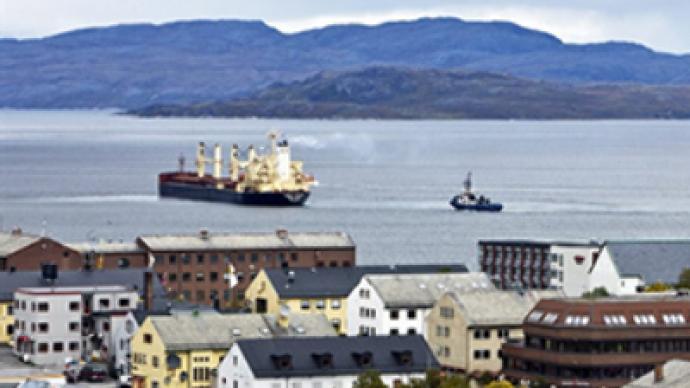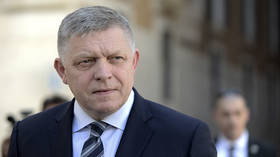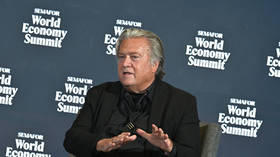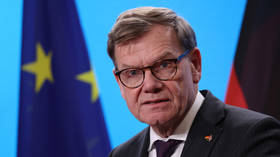China seeks piece of Arctic pie

Russia will compete for the Arctic and should not give an inch on its interests in the region, Navy Commander Admiral Vladimir Vysotsky has said.
In an interview with Itar-Tass, the military chief pointed out that from the economic point of view “many wish to get into Arctic as well as the Antarctic regions.”
“We are already witnessing a number of states penetrating [the Arctic region]. Even though they are not members of the Arctic Council, they are actively and in various ways positioning their interests,” Vysotsky said. For instance, he went on, China “has already signed agreements with Norway on the development of the Arctic zone.”
“We understand the economy and infrastructure existing in China. It is becoming a serious companion both from the positive and problematic points of view,” Vysotsky noted.
Currently, Admiral Vysotsky said, there are no established relations in the Arctic region. There are no obvious opponents or allies either.
“But I believe that the most problematic relations may occur with the non-member states of the Arctic Council,” the navy commander added.
According to the navy chief, Russia should build up its position reasonably and not give up an inch on its interests.
Back in August this year, Norwegian Foreign Minister Jonas Gahr Støre praised China’s cooperation in the Arctic and said it should go further in the future. Speaking at the China Institute of International Studies Forum in Beijing, he said that Oslo had observed “China's technological interest and capability in the Arctic.”
“We would like to see how Norwegian and Chinese research groups on the environment come together in highly complementary areas of interest and go deeper, in areas ranging from natural science to geopolitics,” he said, cited Beijing Review. “It is important for Norway to engage with China in dialogue about all issues relevant in the region,” Støre added.
The Asian country has been actively cooperating with its Norwegian partners in the academic research area. It opened its first Arctic research station in 2004, which made China the eighth state to have its own station on Norway's Spitsbergen. The Chinese Zuelong icebreaker is currently on the longest ever expedition the country has ever had in the region.
Welcoming Beijing’s cooperation, Støre earlier suggested that China should be granted Observer’s status at the Arctic Council.
Meanwhile, Beijing is also actively strengthening ties with another player in the region – Iceland. The area of particular interest for China is new sea routes which are opening due to ice melting. Citing Icelandic President Ólafur Ragnar Grímsson interview with Norwegian broadcaster NRK, Barents Observer wrote that over the past two years relations between Iceland and China have picked up pace.
Following the 2008 financial crisis, when the banks collapsed in Iceland, “we faced a situation, where there was no positive helping hand coming either from Europe or the United States, and I and the government decided to approach the government of China […] to see if China could show some friendship in these times of difficulties,” Grimsson said. He added that the bilateral talks between the leaderships of the two countries indicated that China is keen “to cooperate with Iceland and the other countries in the Arctic region on what is happening in the Arctic and the northern regions and also of what are the implications of the northern sea routes opening up over the next few decades,” the president is quoted as telling NRK.
Evgeny Bazhankov, Vice Chancellor of Research and International Relations at the Russian Foreign Ministry’s Diplomatic Academy, believes there is not much for Russia to worry about in relation to China’s growing role in the region. Like many other countries, it does pursue its economic interests in the region, which is sprawling with natural resources. However, he told RT, it is unlikely that Moscow and Beijing would ever clash over the area. The analyst underlined that the two states are “strategic partners” whose positions on many international issues, including at the UN, are the same. Therefore, Russia and China would certainly be able to come to an agreement on the Arctic zone question as well.
A high-level intergovernmental forum, the Arctic Council was established by the Ottawa Declaration of 1996. Its members are the so-called Arctic states, or the states with the Arctic coastline: Canada, Denmark (including Greenland and the Faroe Islands), Finland, Iceland, Norway, the Russian Federation, Sweden, and the United States. All these states are now competing for the access to the region’s seabed, which is incredibly rich with mineral resources. As the global warming progresses and ice melts, these riches become more accessible.
According to Vysotsky, “all state interests should be integrated under the guidance of a serious organization.”
In addition, the navy chief is confident that satellite technologies should be developed in the Arctic region, “including Glonass, which currently is not functional there.” Glonass (The Global Navigation Satellite System) is the Russian equivalent of the American Global Positioning System, or GPS. Designed both for military and civilian use, it is capable of determining a user’s position within several meters.
Natalia Makarova, RT












